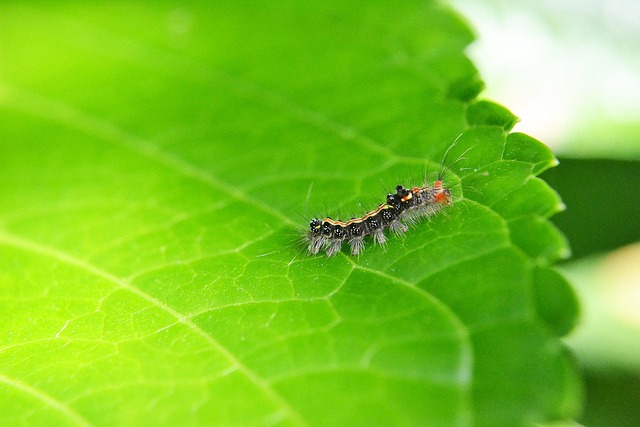In today's professional pest control landscape, technology drives a revolution. Advanced tools like sensors, drones, and AI transform traditional methods, offering precise, eco-friendly treatments. Smart sensors gather real-time data, enabling targeted strategies that minimize chemical use and environmental impact. Integrated Pest Management (IPM) combines biological controls and habitat manipulation for long-lasting solutions. Future trends focus on sustainability, using drones and digital solutions for proactive prevention, reducing costs and enhancing client satisfaction while protecting the environment.
In today’s digital era, the landscape of professional pest control is undergoing a silent revolution. Traditional methods are being transformed by advanced technologies aimed at delivering fast and lasting results. From smart sensors that detect subtle changes to innovative treatment strategies utilizing cutting-edge science, this evolution promises a new era of precision and effectiveness in combating pests. Understanding these modern approaches is key to ensuring a pest-free environment for businesses and residences alike.
Understanding Modern Pest Control: A Shift Towards Technology
In the realm of professional pest control, a significant shift has occurred, driven by advancements in technology. Modern pest control services are no longer reliant solely on traditional methods; instead, they harness the power of innovative tools and techniques to achieve fast and lasting results. This evolution is characterized by a data-driven approach, where advanced technologies like sensors, drones, and AI algorithms play pivotal roles in identifying and eliminating pests effectively.
By integrating these modern solutions, pest control professionals can offer more precise and tailored treatments. For instance, heat treatment systems, motion sensors, and smart surveillance technology enable targeted interventions, minimizing the use of chemicals and ensuring safety for both residents and the environment. This shift towards technology not only enhances efficiency but also promotes a greener approach to pest management, making it an attractive option for those seeking effective and sustainable professional pest control solutions.
Smart Sensors and Data-Driven Strategies
Smart sensors and data-driven strategies are transforming the landscape of professional pest control. These advanced technologies enable precise identification and monitoring of pest activities, providing crucial insights that traditional methods may miss. By collecting real-time data on pest presence, behavior patterns, and environmental factors, smart sensors help experts develop targeted, data-backed strategies.
This approach ensures that treatments are applied efficiently, minimizing the use of chemicals and reducing potential environmental impact. Moreover, data-driven strategies offer lasting results by addressing the root causes of pest infestations, preventing recurrence. With these innovative tools, professional pest control services can now deliver faster, more effective solutions tailored to each client’s unique needs.
Innovative Treatment Methods for Long-Lasting Solutions
In the realm of professional pest control, innovative treatment methods have emerged as game-changers, offering long-lasting solutions that surpass traditional approaches. One such method involves the application of advanced chemicals that are not only highly effective against a wide range of pests but also designed to break down quickly, minimizing environmental impact. These modern pesticides are often engineered with specific targets in mind, ensuring they remain active for extended periods while posing less risk to beneficial insects and other non-target organisms.
Moreover, integrated pest management (IPM) strategies combine various techniques, including biological control, habitat manipulation, and monitoring, to create a balanced ecosystem that disrupts pest populations. This holistic approach not only provides lasting results but also fosters a healthier environment. With IPM, professionals can tailor treatments to specific needs, preventing over-reliance on chemical interventions and ensuring the long-term health of treated areas.
The Future of Professional Pest Control: Prevention and Sustainability
The future of professional pest control lies in a proactive and sustainable approach, focusing on prevention as much as eradication. This shift is driven by both environmental consciousness and cost-effectiveness. Modern technologies are enabling professionals to adopt more precise methods, utilizing advanced tools like drones for inspection, heat sensors for detection, and smart traps that can learn and adapt to pest behavior. These innovations not only enhance efficiency but also minimize the use of chemical pesticides, making it a win-win for businesses and the environment.
By integrating digital solutions into their service offerings, professional pest control providers can offer more comprehensive packages. This includes real-time monitoring systems that alert technicians to potential issues before they become major problems, as well as data-driven strategies tailored to specific locations and pest types. Such proactive measures not only save time and resources but also contribute to a greener and healthier environment, ensuring long-lasting results for clients.
Advanced pest control technologies are transforming the industry, offering faster and more effective solutions than ever before. By leveraging smart sensors, data-driven strategies, and innovative treatment methods, professionals can deliver long-lasting results while promoting sustainability. These modern approaches not only enhance the efficiency of pest management but also contribute to a healthier environment, ensuring a brighter future for both businesses and homes in the realm of professional pest control.
